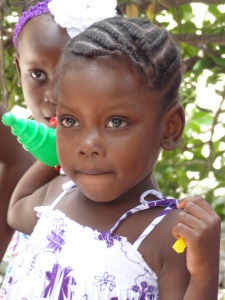 You may notice that some international adoption programs are labeled as “pilot” programs. Parents interested in a country program labeled as a “pilot” program often have two important questions: (1) What does “pilot” program mean?; and (2) Should this label send me running for the hills?
You may notice that some international adoption programs are labeled as “pilot” programs. Parents interested in a country program labeled as a “pilot” program often have two important questions: (1) What does “pilot” program mean?; and (2) Should this label send me running for the hills?
What does a “pilot” program mean in international adoption?
The answer to this question depends on the adoption agency. Each agency will have its own definition. We have provided our definition below, but we encourage you to ask the agency that you are considering directly for their definition.
For MLJ Adoptions, when an international adoption program is first opened to adoptive families, it is initially called a “pilot” program. The program remains a pilot program until the first child adopted from that country by an MLJ Adoptions’ family arrives home. This could (and often does) mean that MLJ Adoptions will have been working in the country for several years before the designation of a “pilot” program is removed.
Well before families are made aware of new or “pilot” programs, the MLJ Adoptions’ team has thoroughly researched the country and the adoption process in that country. Extensive research, speaking with foreign attorneys, government officials, and adoption professionals, and trips to the country occur before an adoption program can be opened as a “pilot” program. During the research stage, our team evaluates the risks of the program, the political climate of the country, how the country views adoption and a variety of other factors to determine if the country would be a good fit for MLJ Adoptions’ families.
If the research leads our leadership team to believe that a country will be a suitable adoption program for MLJ Adoptions’ families, a “pilot” program is born. Our leadership team is looking for several important factors, including, but not limited to: ethical practices, need for international adoption, reasonable eligibility requirements, care of children in country, length of in country stay, stability of the country, policies and procedures, transparency, etc., in order to make such a determination.
MLJ Adoptions has three “pilot” programs, all of which are currently accepting new applications – Burkina Faso, Haiti and Mexico. All three are Hague Convention countries, so while they are “pilot” programs, they all have the stability and assurances of Hague countries, limiting the risks.
Should this label (“pilot” program) send me running for the hills?
Well, it depends on you, and the risks you are willing to take. Risks are inherent in international adoption, as they are in many things that are worthwhile. A “pilot” program in international adoption may increase some of the risks associated with an adoption. Some of the risks that may increase when adopting from a “pilot” program that you will want to consider are as follows:
- Time Frame: There are never guarantees regarding when your adoption will be completed. In countries where MLJ Adoptions’ has a longer history of adoptions, we will have data on how long referrals and adoptions took in specific cases. We can use this data to draw conclusions regarding estimated time frames. In a “pilot” program, because we do not yet have a fully completed adoption, we must solely rely on time frames indicated by others (foreign officials, foreign attorneys, other adoption agencies, adoptive parents and the U.S. government). This lack of direct knowledge regarding time frames may increase the risk that the adoption could be significantly longer or shorter than anticipated.
- Additional Requirements: Before we open a “pilot” program, we meet with foreign attorneys, foreign officials and U.S. government officials to determine the legal and social processes in a specific country. If this is a new program for MLJ Adoptions or if international adoption is a new process in the country, additional documents or steps not originally anticipated or contemplated may be required. It could be that the part of the process was not indicated to us previously or it could be that the country implemented new policies and procedures. We often find that when international adoption is new to the country, there are additional requirements for the first few adoptive families as the country solidifies their own processes and procedures. Unfortunately, this can cause additional work for parents, additional time and may cause additional fees.
Despite the years of research, “pilot” programs are typically newer to MLJ Adoptions and/or the country, and, as such, we are often navigating new waters together with our trailblazing first families. Patience and flexibility are musts when choosing to adopt from a “pilot” program, but the reward is great. Adoption means that children who would otherwise be without a family are given the opportunity to be raised in and loved by a family they deserve. Pilot programs allow more children this opportunity. Adoptive families are drawn to different countries for different reasons, and, as new country programs are established, children from those countries have the chance to be adopted by a forever loving family.
